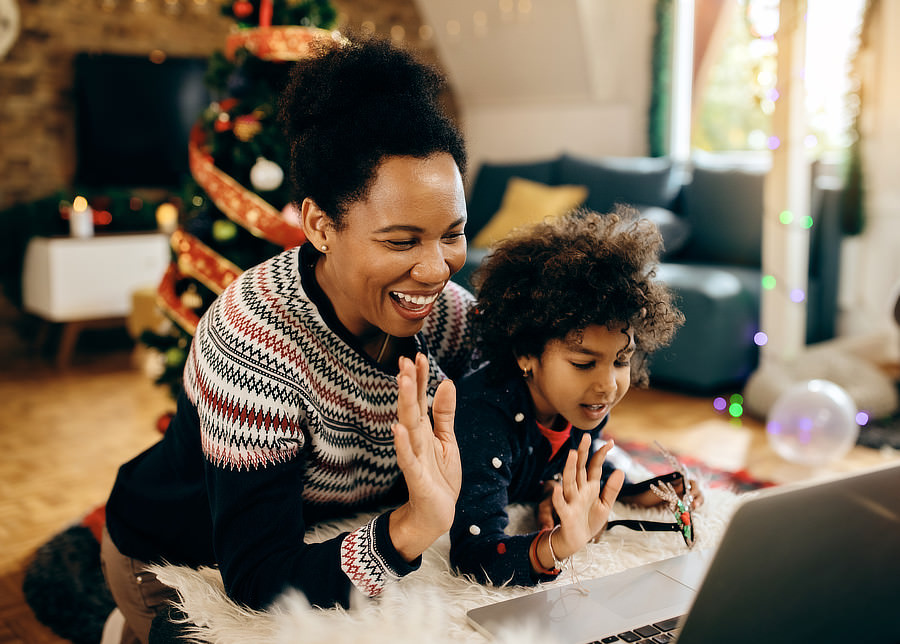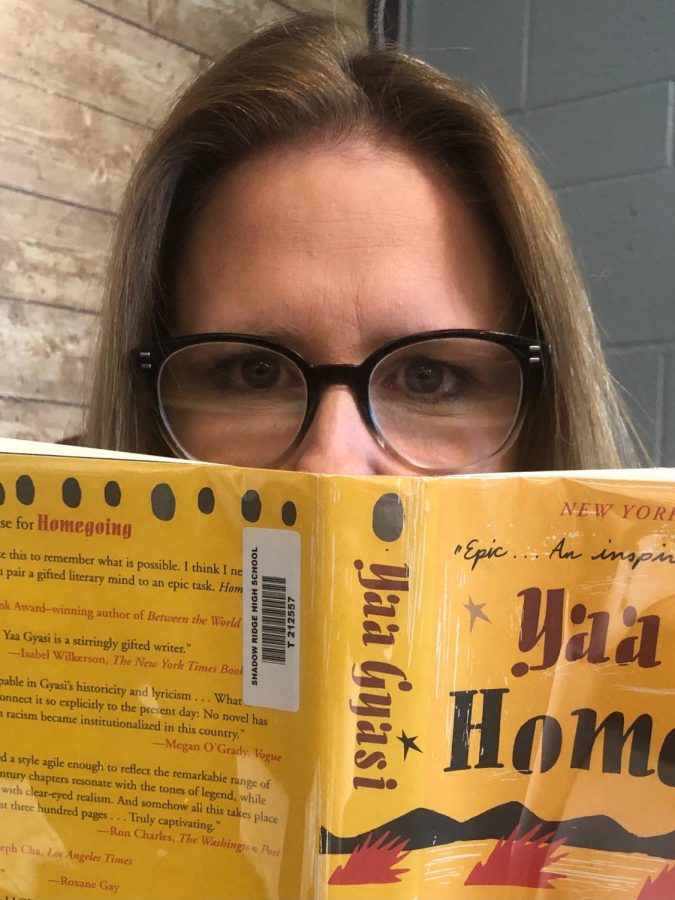Holidays During the Pandemic
Tips for reducing stress, helping students cope, and making new traditions
Photo Courtesy of: Google Images
Video calls are a great way to connect with family this year.
November 22, 2020
As we head into the holidays, families everywhere are struggling to make plans appropriate for the pandemic. How do we celebrate when we can’t be together as usual? How do we resolve differences of opinion about what is safe? How do we deal with more disappointment and frustration — and help our kids do the same?
We can’t tell you what the right (or safe) choices are for your family, but here are some tips to make the best of the holidays during the pandemic, whatever your situation. We asked our experts for advice about ways to minimize stress and help everyone in the family feel as good as possible about this unusual holiday season.
Don’t wait to make plans
Discussions about this year’s holidays can be painful, but making plans ahead of time will make the days themselves much less stressful. “I think some people are thinking, ‘Let’s play it by ear. We still have plenty of time before Christmas. Let’s see how the COVID numbers look later,’” says Kenya Hameed, PsyD, a clinical psychologist at the Child Mind Institute. But, Dr. Hameed advises, it’s better to work with the information we have now and plan accordingly. That gives everyone time to make good decisions and get comfortable with them, especially if they represent a big change in family traditions kids look forward to – like a shopping trip with grandma or a holiday party with friends.
“The more predictability we can create in this uncertain time, the better it is for kids,” notes Grace Berman, LCSW, a social worker at the Child Mind Institute. “By making decisions early, you can really help them be prepared for what’s going to happen.” She suggests outlining for kids what Thanksgiving or Hanukkah or whatever you celebrate is going to look like this year, and then helping them cope ahead with it — work through feelings they might have and come up with strategies to feel better. If you wait until the last minute to figure out plans, kids won’t have time to deal with any confusion or disappointment, which will make the holidays that much more stressful for the whole family.
Discuss rules in advance
Differences of opinion about how to gather safely may be a huge source of stress this holiday season. Safety measures for any kind of holiday gathering should be discussed clearly and decided in advance, advises Colin de Miranda, ASW, a social worker at the Child Mind Institute. “You need clear communication, maybe with everybody getting on a call beforehand and laying out who’s comfortable with what,” de Miranda says.
Will everyone be tested before coming? Where do we stand on hugging? What are our rules about masks? Avoid awkwardness and conflict (and unexpected risk to your family’s safety) by making explicit agreements ahead of time with everyone who’s going to be present. By setting those sorts of ground rules, Dr. Hameed adds, anyone who isn’t comfortable with the arrangements has a chance to excuse themselves from participating.
Knowing that safety rules have been considered carefully is especially important if you have a child with a lot of anxiety around COVID, notes Berman. Whatever you decide to do, it’s comforting for an anxious child to hear from you that the plan is a careful one: “We’ve thought about it and discussed it with everyone, and this is the decision we’ve come to. It’s okay for you to feel anxious, and here are all the steps that we’re taking to make sure that everyone can feel safe.”
Stay the course
And what do you do when a guest who has agreed to a socially distanced visit comes in for the hug anyway? Time to refer to those ground rules. “You can say, ‘Remember, we discussed this, and so as much as I want to hug you right now or as much as I want to be able to see your face without that mask on, I have to ask you to stick to the rules we set,” says Dr. Hameed. It can also be helpful give kids a script to use if someone isn’t respecting the rules: “My mom says I’m not allowed to give you a hug this year but we can wave!”
“Clarity and directness up front will go a really long way in getting people to follow through,” adds Berman. “We see that with kids, and we see it with adults as well.”
Setting a clear timeline with guests can also boost compliance with rules, especially if guests are going to be drinking alcohol as the gathering does on. Invitations commonly come with a start time but not an end time, notes Dr. Hameed. “So this year, families might want to think about having a time where everyone is expected to leave.
Start new traditions
If you’re not going to be able to celebrate in the way your family is accustomed to, be proactive and find new activities to make the pandemic holidays special.
“If you’re not able to share a meal with friends and family, it could be an opportunity to share in other ways, like building photo albums for family members,” suggests de Miranda. Maybe you can cook and swap dishes with nearby loved ones or write letters to relatives you’re not able to see in person this year.
Helping your kids think about ways to be kind and generous to others can make this year’s changes easier to handle, says Berman. For example, try letting your child pick a charity your family can give to. “We know that when we’re dealing with difficult emotions ourselves, doing something for someone else can really help us feel better.”
Give kids a voice
When framing this year as special and creating new activities and traditions, says Dr. Hameed, let kids have a role. What would make this feel special to your kids in positive ways, not just in the negative ways that we’re all aware of? What would they like to cook? What games do they want to play? Do they want to set aside time for favorite movies or listen to special music? “Being part of that decision-making process helps offset some of those negative feelings,” Dr. Hameed explains.
“A lot of times, as parents, we are trying to come up with ideas for things for our kids,” adds Berman. “But really, if you just ask your child, they will have ideas, and that voice that you give them is really important and a strong protective factor.”
Remember that all the changes this year can also be a chance to make the holidays more kid-friendly. Maybe everyone dresses up in a costume. Maybe the kids get to try out a messy new recipe or help stuff the turkey, now that the stakes for Thanksgiving dinner aren’t so high. Maybe it’s a big game of hide and seek that everyone — adults included — participates in. “These might just be simple things that you wouldn’t normally do,” says Dr. Hameed, “but they can still make things more fun for the kids.”
Let kids express disappointment
When children are upset about canceled trips or not seeing cousins, it’s tempting to tell them that it’ll be fine and that they’ll have just as much fun at home. But it’s important to validate their feelings by hearing them out. “You want to really pause and acknowledge that you’re disappointed, too, and let them know that it’s okay for them to feel disappointed,” says Berman.
It’s also helpful to model coping with that disappointment in a positive way. Talk to your kids about what you’re doing to feel better (like scheduling calls with far-off friends or making a favorite recipe) and help them find their own ways to do the same.
And if kids are upset or angry about your decisions not to participate in a larger family gathering, it’s important to validate those feelings too. Dr. Berman suggests language like: “I understand that you’re mad right now. It’s okay to feel frustrated. We made this decision because we thought it was the best way to stay safe. But it’s okay to feel disappointed and mad.”
That validation can go a long way in bringing down those feelings, and it gives you an opening to calmly explaining your reasoning. “Sometimes kids get upset because we’re making decisions and not really giving them any information,” says Berman. Keeping your kids in the conversation and letting them know that you hear them can help them feel respected even in situations that don’t go the way they want.







